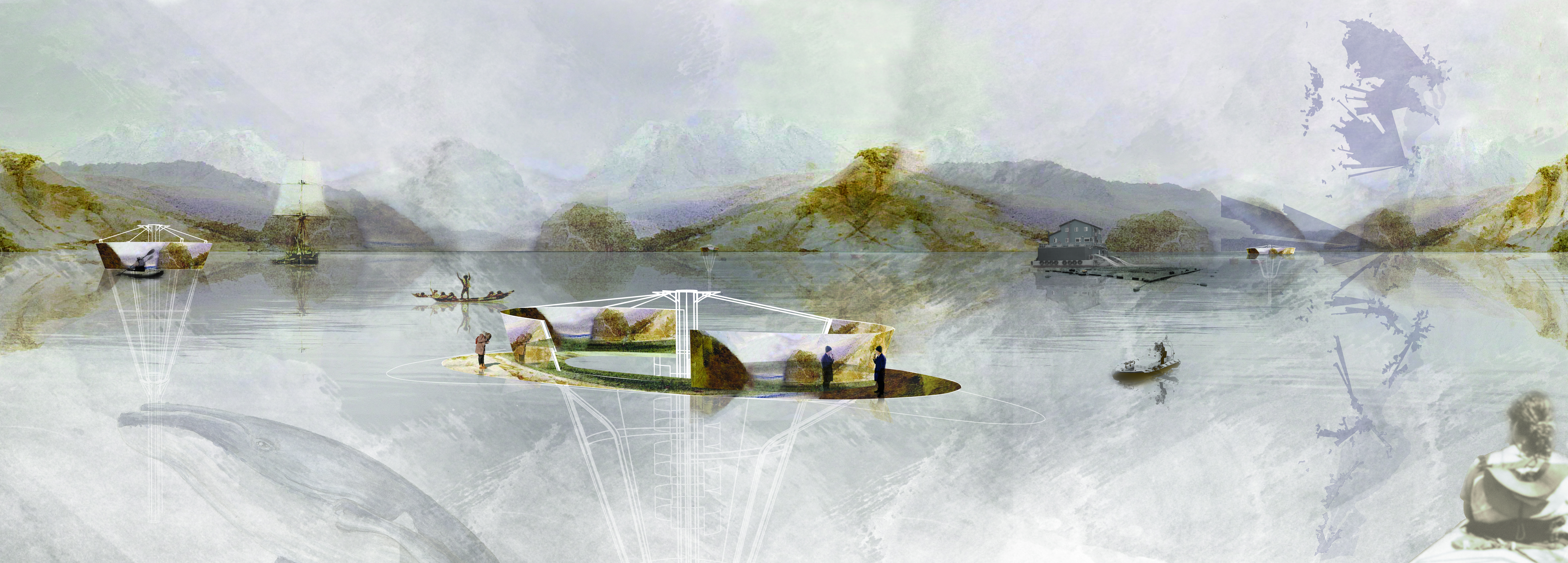
Water Landscape: A proposal for the coexistence of current ancestral and thematic values in the Chilean Patagonian fjords
Final project (thesis)
Pontificia Universidad Católica de Chile
"A cultural landscape is the mark of man's work on the territory," says Joaquín Sabaté. However, there are cultures that have disappeared without leaving visible traces, will their landscapes have disappeared with them?
In the Chilean Patagonia, in the middle of the tangled labyrinth of fjords and channels, the Chonos inhabited 6,000 years ago, a town that almost did not live in the land, and that built in the water the first architectural topography that allowed to inhabit this hostile environment: dalca, which was later used by European explorers who conquered these southern lands.
According to the historian Matthew Martinic,
"... This contribution of the chonos contributed to the development of a culture strongly rooted in maritime traditions and that continues until the present ..." 1
Six millennia of history passed leaving immaterial traces in the culture, evideble by means of maps, because these allow "that new worlds, eidetic and physical, emerge, allowing even to update their
potential ".2
The maps will lead to elucidate the location of the geographical piece that contains the so-called "Landscape of Water", which is currently occupied by aquaculture, which is the second national productive activity. So in what way can we use the tools of Landscape Architecture to coexist the past and the present? That is, the ancestral landscape with the productive landscape of the austral fjords?
1 Martinic, M. (2005) De la Trapananda al Áysen. Santiago: Pehuén. Pág. 35.
2 Corner, J. (2014). The Agency of Mapping: Speculation, Critique and Invention. New York: Princeton Architectural Press. Pag. 198.
